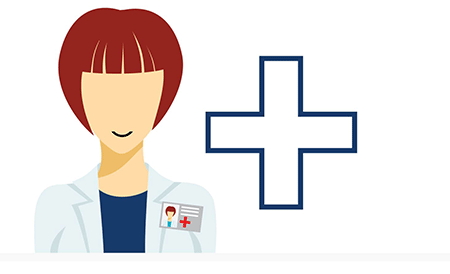
Medical evidence is the foundation of any personal injury case. Medical assessment of your injuries is something that takes place throughout your recovery period from the date of injury onward. The insurance company may require that you attend an independent medical examination (“IME”) but in addition, as part of handling your claim, we will arrange for you to be assessed by all necessary medical experts to ensure that your injuries are properly evaluated to help determine compensation is appropriate.
These assessments by medical experts also provide your case with a medical record, which we can use as evidence of your injuries and the impact they have on your life.
There are several things to be aware of to ensure you’re prepared and are given a fair medical assessment. Your lawyer at CAM LLP will personally prepare you ahead of your assessment, but the following information will give you some background on what to expect. The same insights apply for all medical assessments, whether related to a neck and back injury, spinal cord injury, or head or traumatic brain injury.
- Be Clear and Honest
When you speak to the medical professional administering your assessment, you want to be very clear, truthful, and consistent in how you describe your injury, assuming that the nature of your injury has not affected your ability to communicate, e.g., head injury. For example, if you are asked how to rate the pain you’re experiencing in your neck due to a car accident, try to describe the pain using clear adjectives like constant, sharp, or aching. However, don’t exaggerate. For example, if your neck pain is sharp in the morning and evening but subsides during the day, say so. You don’t need to embellish your pain in order to receive compensation.
Respond truthfully to the questions you are asked. If you’re not honest and consistent, your medical assessment may harm your case. Medical professionals often comment if they find you to be honest and credible, so be truthful when you’re asked questions about your injuries and any relevant medical history. However, you’ll only want to answer the questions you’ve been asked without volunteering extra information. Don’t talk about your claim or your case strategy, for example. A medical examination should be focused on your injuries not your legal claim. Remember, these assessments are available to the opposing party, and if you are “over-selling” your injuries you can bet they will test you on that during Questioning or at trial if your claim goes that far.
- Take Notes
After your medical assessment, you’ll want to accurately record your experience. It’s important to do this as soon as you can after your assessment is complete, when your memory will be fresh and you’ll be able to recall the greatest amount of details. You’ll want to note the following information:
- What tests or procedures were performed
- What questions the medical expert asked
- How long the examination took
You’ll want to provide this information to your lawyer, as it can be helpful as we go through preparing your case for trial. Note that most personal injury cases are settled without court proceedings but our approach is to prepare as if every case may end up in court. It’s more efficient and lets the otherside know we are taking the matter seriously.
- Know Your History
Often the medical professional who will be completing your medical assessment will have access to your medical records. This will include records for any appointments you’ve attended before and after your accident. In knowing your medical history, you’ll be able to confidently answer questions about your pre and post accident health. Specifically if you’re asked about your health before your accident, you’ll want to be consistent in how you describe pre-existing conditions. However, if you don’t know an answer, it’s fine to say that.
- Be Self Aware
Not only will the doctor report on the details of the medical assessment, but they may possibly report their opinions on your presentation, timeliness, and movements before and after your assessment. This means that you should arrive to your assessment at least 15 minutes early, and be dressed appropriately. The person conducting the assessment will also take note of how you move, even as early as you entering the building, so move in a way that feels comfortable and natural to you. Also, be as cooperative with the assessor as possible, but don’t hesitate to let them know if you need a break because you’re feeling uncomfortable or in pain.
Remember, your goal is to return back to optimum health! Don’t only express that to the professionals completing your medical assessments, but also in how you view and complete the treatments prescribed to you.The sooner you get back to the best version of yourself, the better! In addition, by following the steps above, you’ll be in a position to receive an assessment that supports your claim.
For additional information about IMEs see:
- Independent Medical Examinations: What you need to know
- Credibility is Key: A Tale of Two Plaintiffs
